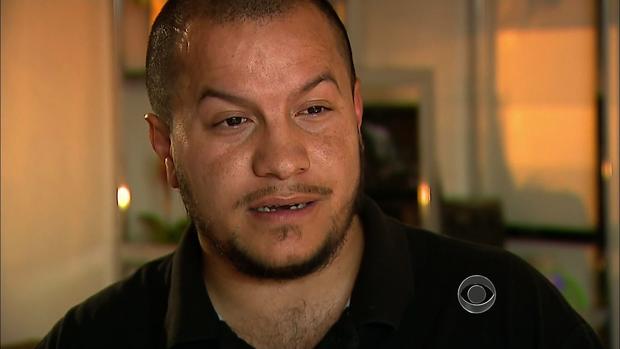Repetitive brain injuries linked to damage later on in life
(CBS News) New research is showing just how dangerous repetitive head injuries -- including sports-related concussions -- can be.
Scientists studied 85 donated brains, most from professional athletes. Sixty-eight showed signs of chronic brain damage.
Hall of Fame tight end John Mackey achieved glory on the football field, including a Superbowl touchdown in 1971.
But, he was a shell of himself at the end of his life. In 2007, dementia had left him unable to care for himself or understand what was happening to him. Mackey died four years later at the age of 69.
His brain was one of 85 examined in the study by researchers at Boston University and the Boston V.A. Hospital. Lead author Dr. Ann McKee studied the long term consequences of repetitive injuries to the brain caused by concussion.
Major study of athletes' brains links head injuries to brain damage
"This is something that happens down the road," McKee said. "The acute trauma is a different injury."
McKee said there's no new incident of trauma, but it's clear the disease is underway. Once the disease is triggered and the longer the patient survives, the more the disease can progress leading to more imparement
While more than half of those studied were athletes, the research also looked at veterans of war.
"It really doesn't matter how the brain trauma occurred -- athletic field, battlefield, accident -- it's just the fact they had these injuries," McKee said.
Rigo Saenz served in Iraq. He survived half a dozen IED blasts, which have the same effect on the brain as a concussion. Brain damage has left him 100 percent disabled according to the government.
"Like, I know the word, but I cannot say it," he said. "Things like that, it happens every day, and it gets me mad."
"We can't treat Rigo Saenz better if we don't what's contributing to his problems, what is making him disabled," McKee said. "If we can understand those little changes that lead to problems, then we can interrupt them. We can intercept them with therapeutic agents."
The big hope is for researchers to identify CTE -- a brain damage condition caused by repetitive brain injuries -- in those who are still alive. Right now, the only way to diagnose it is examining the brain tissue in those who already died.

